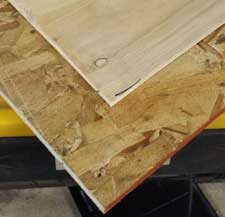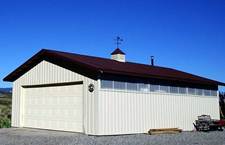A Contractor for Your Barndominium (Part II)
Liquidated Damages
For most people, you are financing your barndominium and have logistical issues prior to being able to occupy. Negotiate a hard date for project completion, using a start date based upon Building Permit approval. After this completion date, you will assess builder a monetary penalty for given time periods (daily, weekly or monthly). For some, loans need to be extended (fees), living arrangements changed (fees) and storage incurred. These fees should escalate over time. Don’t forget to add in extra for your time. Contract should spell out any mutually acceptable construction delays including “Acts of God.” Under no condition should you occupy any portion of your barndominium, prior to final completion.
Bonding
For as little as a few hundred dollars, a legitimate contractor can acquire a performance bond (read more here: https://www.hansenpolebuildings.com/2012/07/contractor-bonding/) ensuring the contractor will complete the job according to your contract. If they fail to perform, this performance bond guarantees no money will be lost in bringing in another contractor to complete unfinished work.
During Construction
Visit Your Site
Tend to your site often. Show up at least twice a week (if not daily). During your visit, take pictures, lots of pictures. Purchase a camera with a Date and Time Stamp. Identify areas, in picture, with some type of signage, “Master Bedroom from Door Entrance” would be an example. By your project end you should have hundreds of pictures of every phase. Get a thumb drive if needed. Be able to read your “Approved Drawings” as well as all Installation Instructions.
Site Conditions
I cannot stress this enough, it has been my experience the single biggest project quality indicator is organization. A good job site should seem organized. If your project site is disorganized, trashy, and cluttered, so is your project. This should be your indicator to take more pictures and notify the General Contractor this is unsatisfactory. Every sub-contractor should have a clause in their contract they should clean up their mess. It also means your General either doesn’t care, or is not holding their Subs accountable. If you do not want to be responsible for clean-up and hauling off trash, make certain to include that in the contract.
Under no Circumstances Provide Assistance.
An impulse to “help” or “get a job done” is natural. Remember once you touch something, or provide support in any way, you have some liability. Every trade should have all needed tools, power, and equipment for the job they are doing. They are supposedly Professionals.
Keep Meticulous Records
Keep every bill, every material delivery, and every correspondence. Always communicate in writing with the Contractor. If you have a phone call, back it up with at least an email summarizing your conversation and get a response. Never delete an email. You might want to set up a new account just for your project. Never, ever, take “their word” for anything. ANYTHING.
Hire an Architect to view your project at Framing.
 Have a Registered Architect do a “Site Visit” once framing is complete and before drywall. Not only will he/she look at structural components, but this is when to catch issues potentially causing future challenges. They should give you a written report regarding any deficiencies in quality per specifications in your contract, engineered building plans and assembly instructions. This is money well spent and will potentially save you thousands over your building’s life. Give this report to your Contractor and get a date by when these items will be corrected–in writing!
Have a Registered Architect do a “Site Visit” once framing is complete and before drywall. Not only will he/she look at structural components, but this is when to catch issues potentially causing future challenges. They should give you a written report regarding any deficiencies in quality per specifications in your contract, engineered building plans and assembly instructions. This is money well spent and will potentially save you thousands over your building’s life. Give this report to your Contractor and get a date by when these items will be corrected–in writing!
Drywall
Drywall has two functions. Main function is fire resistance (not fireproof). A secondary function is architectural, as it is your interior finish base. In limited cases, it also provides shear capacity. In general drywall should be screwed at 7″ at the edges (minimum) and 12″ in the center. It should be 1/2″ (I prefer 5/8”) thick in most of your barndominium. With commercial bookshelf girts, drywall should be installed vertically (read more here: https://www.hansenpolebuildings.com/2019/09/11-reasons-post-frame-commercial-girted-walls-are-best-for-drywall/ ). Do not allow “mud” patches as they will eventually crack and fail.
Finish Work
This is more for aesthetics and functionality in your project. In construction, this is entirely up to you to get what you want and have paid for. Ensure instructions from suppliers are followed. Read them. Visit site daily at this phase. Take pictures!
See you tomorrow for Part III









